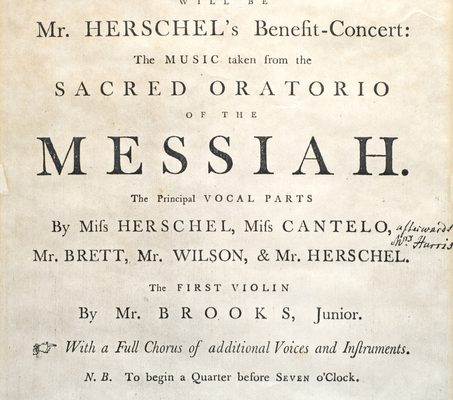Music was a pleasurable leisure and communal activity in the Georgian era, enjoyed across the social spectrum. One of the principal ways in which people experienced music was through domestic music-making. Its growing popularity went hand in hand with the vast quantity of music composed and published with amateurs in mind. However, as recreational and leisure activities became more readily available in the public sphere so too did access to professional music-making, which was increasingly performed at venues such as opera houses, assembly rooms, pleasure gardens, taverns, churches and the theatre. A notable collaboration between a public venue and musician includes George Frederic Handel, whose ‘Music for the Royal Fireworks’ was first played at Vauxhall Gardens in a rehearsal attended by up to 12,000 paying customers.
The eighteenth century also saw an explosion in enthusiasm for opera, in large part due to Handel. In the early eighteenth century opera was dominated by castratos. The most famous castrato was Farinelli who could hold a note for a whole minute and sing over three octaves. Castratos could also demand vast sums of money to perform. Senesino, who was persuaded by Handel to perform in London in 1710, commanded £2000 for the year.
Whilst London was in many ways the centre for musical performances, the British provinces also enjoyed a vibrant musical scene. York, in particular, could boast an impressive programme of events, with musical performances at the Assembly Rooms, and concerts, such as Handel’s Messiah, at the Minster.

Source: In Pursuit of Pleasure: Entertaining Georgian Polite Society (Fairfax House, 2016)
